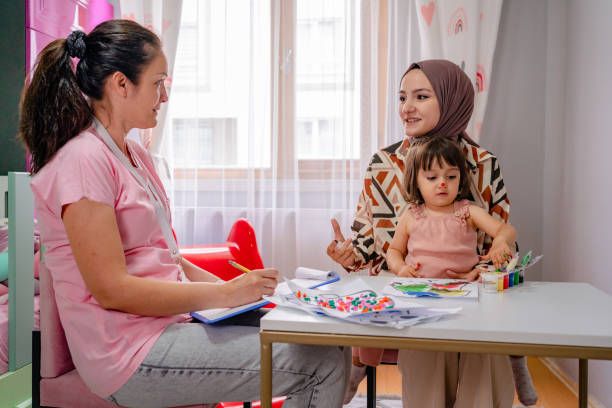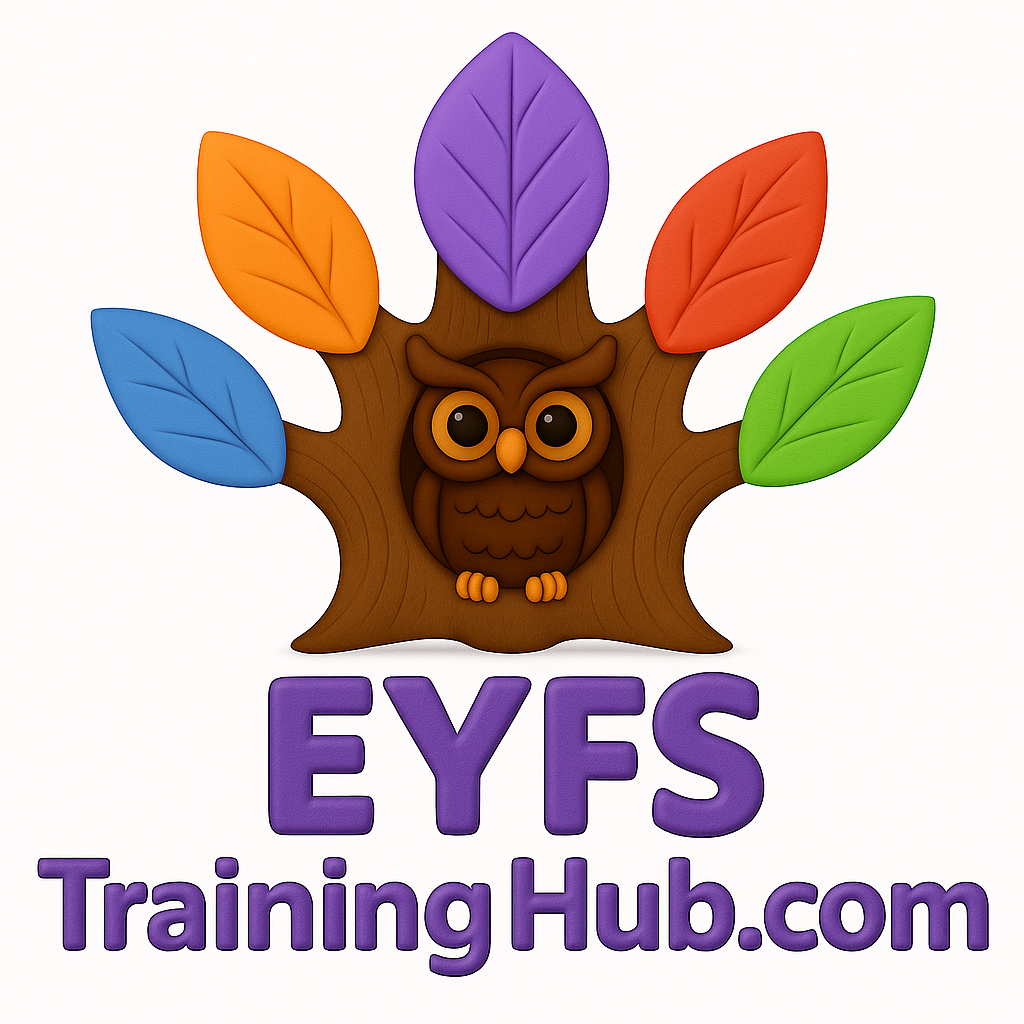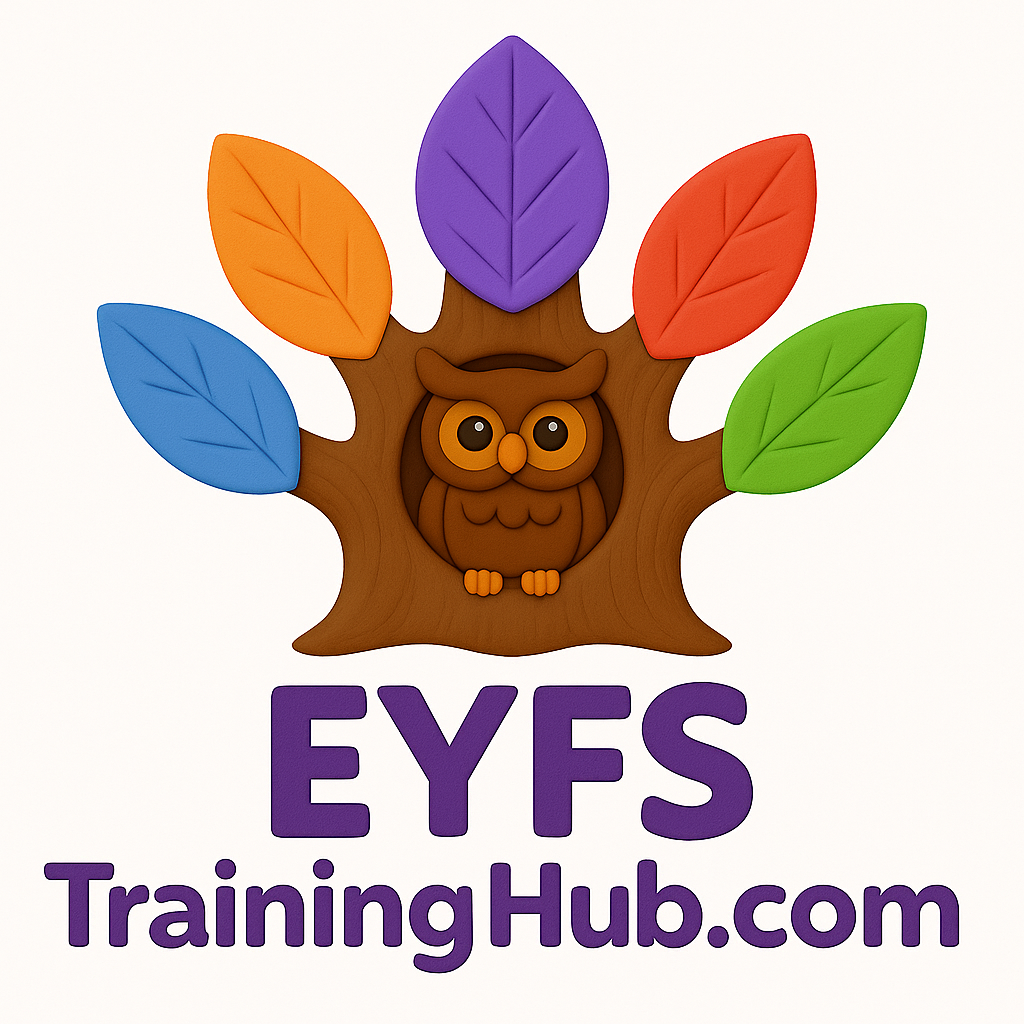Childminder Inspection Checklist
Jul 2
/
EYFStraininghub.com

✅ 1. DBS Checks and Suitability
What: You and all household members over 16 must have a valid DBS check, ensuring that you are all subscribed to the update service.
Why it matters: Ofsted needs to ensure every adult in the household is safe to be around children.
EYFS Requirement:
3.10 Childminders and any assistants must be deemed suitable by Ofsted or their CMA; they must have the relevant training and have passed any required checks to fulfil their roles. Childminders must also ensure any person who may have regular contact with children (for example, someone living or working on the same premises where the childminding12 is being provided), must also be suitable.
EYFS Requirement:
3.10 Childminders and any assistants must be deemed suitable by Ofsted or their CMA; they must have the relevant training and have passed any required checks to fulfil their roles. Childminders must also ensure any person who may have regular contact with children (for example, someone living or working on the same premises where the childminding12 is being provided), must also be suitable.
✅ 2. First Aid Training
What: You must complete a full 12-hour Paediatric First Aid (PFA) course that meets EYFS Annex A requirements.
Why it matters: In an emergency, knowing how to respond effectively could save a child's life.
EYFS Requirement:
3.34 Childminders are required to have a paediatric first aid (PFA) certificate to register and must continue to hold this at all times that they are registered. At least one person who has a current paediatric first aid (PFA) certificate must be on the premises and available at all times when children are present, and must accompany children on outings.
EYFS Requirement:
3.34 Childminders are required to have a paediatric first aid (PFA) certificate to register and must continue to hold this at all times that they are registered. At least one person who has a current paediatric first aid (PFA) certificate must be on the premises and available at all times when children are present, and must accompany children on outings.
✅ 3. Safeguarding Knowledge
What: Understand signs of abuse, your duty to report concerns, and have a safeguarding policy.
Why it matters: Knowledge and understanding for identifying concerns and knowing what action to take, underpinned by up to date and compliant safeguarding policies and procedures.
EYFS Requirement:
3.4-3.5 Childminders working alone or with assistants must take lead responsibility for safeguarding children in their setting. Childminders must know how to contact the local statutory children’s services and the LSPs (local safeguarding partners). All practitioners must be alert to any issues of concern in the child’s life at home or elsewhere.
EYFS Requirement:
3.4-3.5 Childminders working alone or with assistants must take lead responsibility for safeguarding children in their setting. Childminders must know how to contact the local statutory children’s services and the LSPs (local safeguarding partners). All practitioners must be alert to any issues of concern in the child’s life at home or elsewhere.
✅ 4. Policies and Procedures
What: Have clear written policies including safeguarding, complaints, illness, behaviour, and risk assessment.
Why it matters: Policies and procedures guide consistently compliant practice and provision.
EYFS Requirement:
3.6 Childminders must have and implement policies and procedures to keep children safe and meet EYFS requirements. Childminders solely registered on the early years register or with an early years CMA are not required to have written policies and procedures. However, they must be able to explain their policies and procedures to parents, carers, and others.
EYFS Requirement:
3.6 Childminders must have and implement policies and procedures to keep children safe and meet EYFS requirements. Childminders solely registered on the early years register or with an early years CMA are not required to have written policies and procedures. However, they must be able to explain their policies and procedures to parents, carers, and others.
✅ 5. Risk Assessments
What: You must identify and manage risks across every aspect of your provision, including your home, garden, and on outings.
Why it matters: Maintaining assessments of risks, along with swiftly mitigating or removing them is an essential safeguarding requirement.
EYFS Requirement:
3.75 Childminders must ensure that they take all reasonable steps to ensure that children in their care, and any assistants, are not exposed to risks and must be able to demonstrate how they are managing risks.
EYFS Requirement:
3.75 Childminders must ensure that they take all reasonable steps to ensure that children in their care, and any assistants, are not exposed to risks and must be able to demonstrate how they are managing risks.
✅ 6. EYFS Knowledge and Curriculum Planning
What: Understand the 7 areas of learning and how to support each child’s development.
Why it matters: Understanding the 7 areas of learning coupled with your knowledge of each child's individual learning and development journey, is essential for quality provision.
EYFS Requirement:
1.3 There are seven areas of learning and development that set out what childminders must teach the children in their settings. All areas of learning and development are important and inter-connected.
EYFS Requirement:
1.3 There are seven areas of learning and development that set out what childminders must teach the children in their settings. All areas of learning and development are important and inter-connected.
1.4 Three prime areas are particularly important for learning and forming relationships. They build a foundation for children to thrive and provide the basis for learning in all areas.
✅ 7. Daily Routine
What: Be ready to explain your day including play, meals, rest, intimate care and learning, underpinned by clearly identified and appropriate learning intentions.
Why it matters: Delivering high quality activities with meaningful and appropriate intent, demonstrates that the children's developmental needs are being well supported.
EYFS Requirement:
5. Children learn and develop well in enabling environments with teaching and support from adults, who respond to their individual interests and needs and help them to build their learning over time. Children benefit from a strong partnership between practitioners and parents and/or carers.
EYFS Requirement:
5. Children learn and develop well in enabling environments with teaching and support from adults, who respond to their individual interests and needs and help them to build their learning over time. Children benefit from a strong partnership between practitioners and parents and/or carers.
✅ 8. Planning for Individual Children
What: Be prepared to talk about each child’s development journey, including what they can currently know and can do and what personalised next steps you are supporting them with, towards being well prepared for their next transition.
Why it matters: This shows you are reflective, child-centred, and planning with intention — not just offering a generic approach. It demonstrates how you deliver a sequenced, ambitious curriculum tailored to each child’s age and stage.
EYFS Requirement:
5. Every child is a unique child, who is constantly learning and can be resilient, capable, confident, and self-assured.
Why it matters: This shows you are reflective, child-centred, and planning with intention — not just offering a generic approach. It demonstrates how you deliver a sequenced, ambitious curriculum tailored to each child’s age and stage.
EYFS Requirement:
5. Every child is a unique child, who is constantly learning and can be resilient, capable, confident, and self-assured.
✅ 9. SEND Awareness
What: Understand how to identify and support children with Special Educational Needs and Disabilities (SEND).
Why it matters: The SEND Code of Practice requires early identification and inclusive practice.
EYFS Requirement:
3.60 Childminders must have arrangements in place to support children with Special Educational Needs and Disabilities (SEND). Childminders are encouraged to identify a person to act as a SENCO (SEND coordinator).
EYFS Requirement:
3.60 Childminders must have arrangements in place to support children with Special Educational Needs and Disabilities (SEND). Childminders are encouraged to identify a person to act as a SENCO (SEND coordinator).
✅ 10. Knowledge of Ratios
What: Know the adult-to-child ratios for childminders, along with the use of your floor space.
Why it matters: Effective ratio and deployment demonstrates that the children's safety and focused attention is a priority in your provision.
EYFS Requirement:
3.39 Staffing arrangements must meet the needs of all children and ensure their safety. Childminders must ensure that children are adequately supervised, including whilst eating, and decide how to use any assistants to ensure children’s needs are met.
EYFS Requirement:
3.39 Staffing arrangements must meet the needs of all children and ensure their safety. Childminders must ensure that children are adequately supervised, including whilst eating, and decide how to use any assistants to ensure children’s needs are met.
✅ 11. Health, Hygiene and Nutrition
What: Provide healthy meals, support good hygiene, and ensure fresh water is always accessible.
Why it matters: This is your opportunity to demonstrate your commitment to providing quality care and education by nurturing the children's physical health and teaching them how to be healthy. (You must have implemented the requirements set out in the new DFE Early Years Foundation Stage Nutrition).
EYFS Requirement:
3.50 Childminders must promote the good health, including the oral health, of the children they look after.
EYFS Requirement:
3.50 Childminders must promote the good health, including the oral health, of the children they look after.
✅ 12. Record Keeping
What: Maintain accurate records on attendance, accidents, parental permissions, and safeguarding.
Why it matters: You will be expected to demonstrate how you track and manage children’s progress, welfare in partnership with parents and relevant agencies, while ensuring GDPR.
EYFS Requirement:
3.76 Childminders must maintain records, obtain and share relevant information (with parents and carers, other professionals working with the child, the police, social services and Ofsted or their CMA) as appropriate.
EYFS Requirement:
3.76 Childminders must maintain records, obtain and share relevant information (with parents and carers, other professionals working with the child, the police, social services and Ofsted or their CMA) as appropriate.
✅ 13. Suitability and Recruitment Checks for Assistants
What: Carry out safer recruitment checks and maintain on-going suitability checks.
Why it matters: You must be confident that anyone working with children is suitable and supported.
EYFS Requirement:
3.14 Relevant information about identity checks, the vetting process completed (including the criminal records check reference number, the date a check was obtained and details of who at the setting obtained it) will be kept by Ofsted or the CMA with which the childminder is registered.
Why it matters: You must be confident that anyone working with children is suitable and supported.
EYFS Requirement:
3.14 Relevant information about identity checks, the vetting process completed (including the criminal records check reference number, the date a check was obtained and details of who at the setting obtained it) will be kept by Ofsted or the CMA with which the childminder is registered.
Final Thoughts:
Preparing for your Ofsted or CMA inspection doesn’t have to be overwhelming. With this checklist—and a clear understanding of the ‘what’ and ‘why’ behind each area of your practice—you’ll feel confident, organised, and inspection-ready.
Intent is knowing what you want children to learn and why. It's about having a clear, purposeful vision rooted in the EYFS requirements.
Implementation is how you bring that vision to life—through your routines, interactions, environment, and teaching strategies.
Impact is the result: confident, happy children who are learning, thriving, and progressing—and families who see the difference your setting makes.
The EYFS is your foundation. The more intentionally you plan and deliver your provision, the more clearly you'll demonstrate the depth and quality of your practice from day one.
Reference:
https://assets.publishing.service.gov.uk/media/670f8c0f366f494ab2e7b93d/EYFS_statutory__framework_for_childminders.pdf
https://www.gov.uk/government/publications/early-years-inspection-handbook-eif/early-years-inspection-handbook-for-ofsted-registered-provision-for-september-2023
https://assets.publishing.service.gov.uk/media/5a7dcb85ed915d2ac884d995/SEND_Code_of_Practice_January_2015.pdf
https://www.gov.uk/government/publications/early-years-inspection-handbook-eif/early-years-inspection-handbook-for-ofsted-registered-provision-for-september-2023
https://assets.publishing.service.gov.uk/media/5a7dcb85ed915d2ac884d995/SEND_Code_of_Practice_January_2015.pdf

